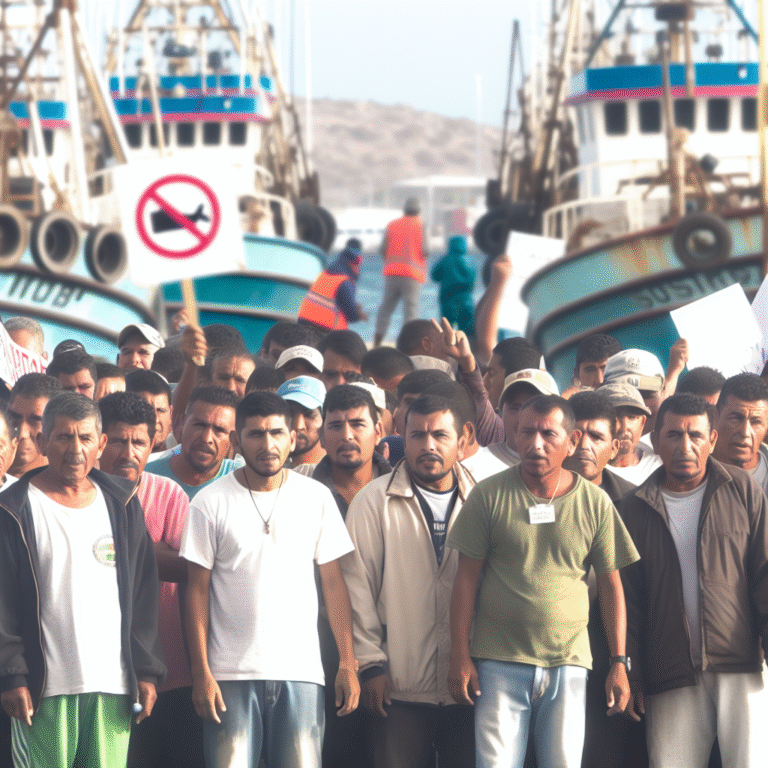New Year Brings New Requirement for Coastal Fishermen
As we step into the new year, coastal fishermen are facing a significant change: all fishing boats must now be registered. This mandate stems from the Fisheries Act, which officially took effect on January 1.
The implications are serious. According to the new law, fishermen who fail to register their boats could face hefty fines, a prospect that has many in the fishing community deeply concerned.
Leaders in the fishing sector, including Timotheus Petersen, chairman of the fishermen’s and trappers’ association in Kullorsuaq, and Lars Erik Gabrielsen, the mayor of Avannaata Kommunia, are urging authorities to reconsider the registration deadline. Petersen has expressed that the transition has proven exceptionally challenging for coastal fishermen, largely due to bureaucratic hurdles.
At the heart of the issue lies the process of completing an electronic registration form via a website accessible only through MitID. Unfortunately, for many fishermen residing in remote settlements with unreliable internet access, this requirement has become a significant barrier. Petersen explains, “In areas where connections are unstable, and the internet often falters, logging in with MitID becomes a near-impossible task, leaving many unable to complete the necessary forms.”
Adding to the complexity is the fact that the registration forms are currently only available in Danish. This language barrier is particularly problematic, as many fishermen do not speak Danish fluently, and a significant number have not yet registered for MitID. “This autumn has been exceptionally difficult. Several of our members struggle to understand the forms, compounding their difficulties,” Petersen notes.
In response to the mounting concerns, KNR reached out to the Danish Maritime Authority for clarification on how they plan to address the lack of a Greenlandic translation. The authority acknowledged the problem but stated, “While we wish to assist, we currently cannot offer support in Greenlandic.”
As the end of the year draws near, anxiety among the fishermen mounts. Many rely on fishing for their livelihoods, yet they find themselves grappling with the new requirements and urgently seeking assistance from local authorities. Petersen adds, “We believe that representatives from the Self-Government and the municipality should work together to find a constructive solution.”
Support for Extension
Mayor Gabrielsen concurs with the fishermen’s plea. He highlighted that, with so many boats yet to be registered, it’s unrealistic to expect compliance by the approaching deadline. “We must reach out to the Danish Fisheries Agency to request an extension. The current situation is untenable,” he stated. “Even if the necessary documentation is processed daily, it remains uncertain if all registrations can be finalized before the new year.”
For boats to be registered, they require certificates validating their size and specifications. However, many small vessels in North Greenland lack such documentation entirely. Although Avannaata Kommunia has made strides to support the registration process, the mayor acknowledges that there is a pressing need for additional assistance.
“We have worked to enhance our services in settlements, but due to limited expertise, our ability to prepare measurement letters is restricted,” he explained.
Gabrielsen directed sharp criticism at the Self-Government for imposing such stringent requirements. “The challenges are immense, and it seems unreasonable that such regulations are in place. It feels like an effort to reduce the number of individuals involved in fishing,” he expressed.
In a response to KNR, the Department of Fisheries outlined that they are in discussions to address the fishermen’s concerns raised by both the Kullorsuaq association and Mayor Gabrielsen. They clarified that, “Documenting that an application for registration has been submitted will suffice.” This means that current fishermen will still receive licenses for the 2026 quota year, even if their official registrations are delayed.
As the new year approaches, the fishing community waits anxiously for resolutions that will help secure their livelihoods while navigating the complexities of new regulations.
